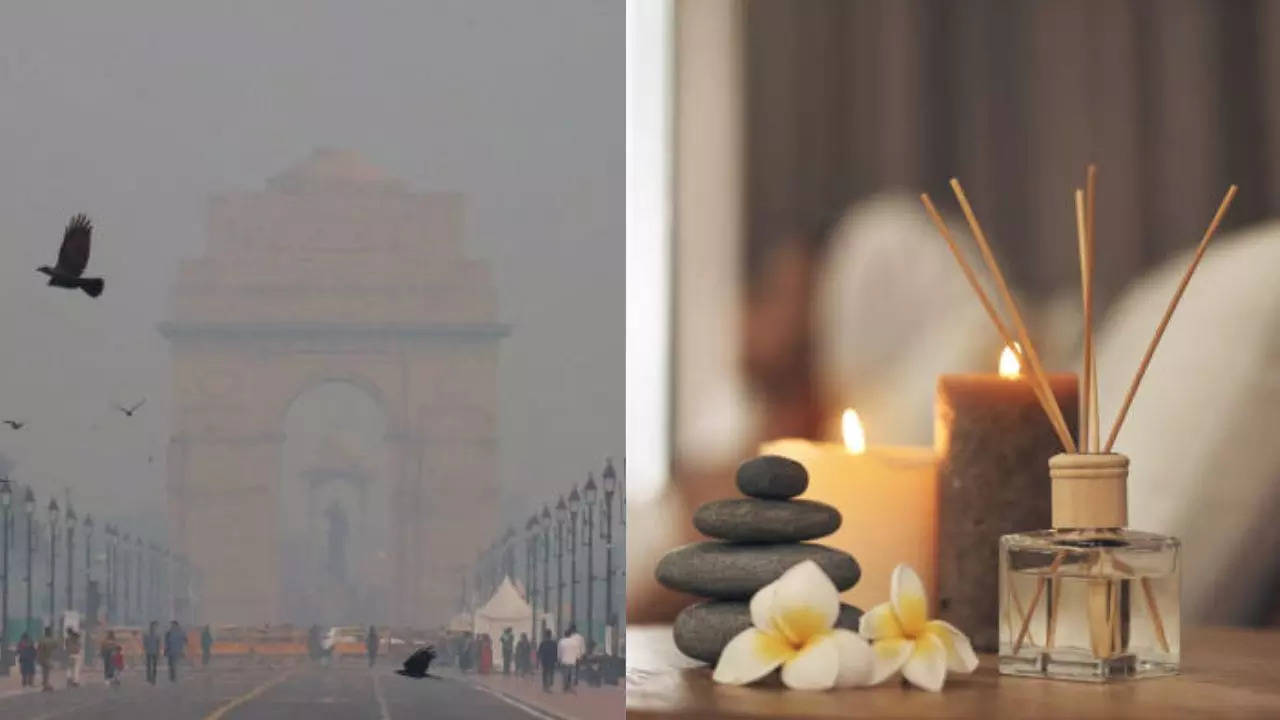-
news
-
Health
Delhi’s AQI in poor range: Know how scented candles can be responsible for indoor air pollution
Delhi’s air quality slipped into ‘poor’ category, with AQI levels reaching peak levels in many areas. Adding to the concerns, a study highlights how scented candles, incense and air fresheners increase indoor air pollution, releasing harmful chemicals and particles that can cause serious health problems in poorly ventilated spaces. Can.

Delhi’s AQI in the poor range: Here’s how scented candles could be responsible for indoor air pollution (Image credit: iStock)
Delhi’s air quality has once again slipped into the ‘poor’ category, with the air quality index (AQI) recorded at 219 on Saturday morning, according to Central Pollution Control Board (CPCB) data. Areas like Alipore (AQI 231), Ashok Vihar (225), Bawana (262), and Burari (274) recorded particularly worrying levels.
While outdoor air pollution remains a significant issue in Delhi, a recent study highlights a lesser-known contributor to poor air quality: scented candles, air fresheners and incense sticks. The study, led by researchers Asit Kumar Mishra of University College Cork and Mary Coggins of the University of Galway, sheds light on how these common household products can have a negative impact on indoor air quality.
The dark side of festive scents
With the holiday season in full swing, homes are often decorated with gingerbread, cinnamon and pine-scented candles, as well as festive diffusers to heighten the holiday spirit. Although these products may mask unpleasant odors, studies warn that they may also increase unpleasant odors indoor air pollution Instead of reducing it.
Researchers found that burning scented candles or using air fresheners in poorly ventilated spaces can significantly increase exposure to harmful pollutants. In poorly ventilated rooms, it may take several hours for pollutant levels to return to normal after use of such products.
How scented products affect indoor air
According to the study, burning candles or incense sticks releases a mixture of chemicals and particles, including toxic gases like carbon monoxide, sulfur dioxide and nitrogen oxides. Additionally, home fragrance products emit volatile organic compounds (VOCs), which are harmful to health.
Short-term exposure to these pollutants can cause coughing, sneezing, and irritation of the eyes, nose, throat, and lungs. However, long-term exposure poses more serious risks, including heart disease, lung cancer, chronic bronchitis, and severe asthma symptoms.
Are organic candles safe?
Many people believe that natural or organic candles are a healthy choice, but studies have debunked this myth. Even when made from natural materials, burning these candles releases harmful chemicals into the air, contributing to indoor pollution.
WHO guidelines on indoor air quality
The World Health Organization (WHO) has warned that burning scented candles in closed spaces can lead to concentrations of particulate matter up to 15 times higher than acceptable limits. These peak concentrations can persist for hours, posing a threat to people inside the room.
How to reduce indoor air pollution
To improve indoor air quality, experts recommend:
-Ventilation: Keep windows open and avoid blocking wall vents.
– Limit scented products: Minimize use of candles, incense sticks and air fresheners.
– Avoid smoking indoors: Cigarette smoke worsens indoor pollution to a great extent.
– Select option: Opt for natural ventilation or odor neutralizing plants to freshen indoor spaces.
Get the latest news live on Times Now with breaking news and top headlines from around the world.


